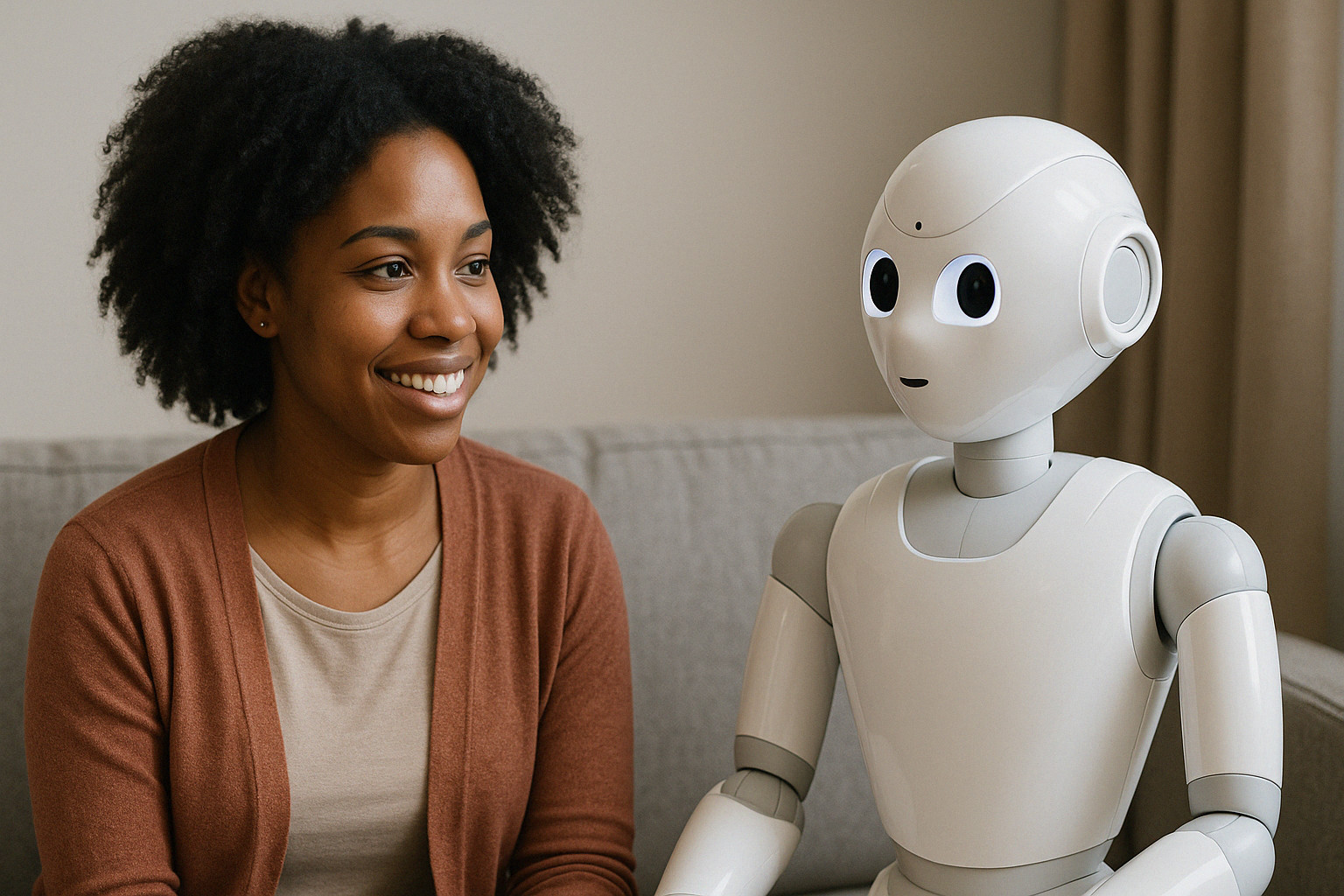AI Companions Transform Business and Personal Life
How AI Companions Are Transforming Business and Personal Relationships
Artificial Intelligence (AI) is no longer just a tool for automation—it’s evolving into a companion that can engage, assist, and even form emotional connections with humans. From AI-powered chatbots that enhance customer service to virtual friends that provide emotional support, AI companions are reshaping both business and personal interactions.
In this blog post, we’ll explore:
- What AI companions are and how they work
- The different types of AI companions in business and personal life
- The benefits and ethical concerns of AI relationships
- The future of AI companionship
What Are AI Companions?
AI companions are advanced artificial intelligence systems designed to interact with humans in a conversational, empathetic, and sometimes even intimate manner. These AI entities use natural language processing (NLP), machine learning, and emotional recognition to simulate human-like interactions.
Unlike traditional AI tools that perform specific tasks (like Siri setting a reminder), AI companions are built to engage in ongoing relationships, learning from user behavior to provide more personalized responses over time.
How Do AI Companions Work?
AI companions rely on several key technologies:
- Natural Language Processing (NLP) – Allows AI to understand and generate human-like text or speech.
- Machine Learning (ML) – Helps AI improve responses based on past interactions.
- Sentiment Analysis – Detects emotions in text or voice to respond empathetically.
- Generative AI (e.g., GPT-4, Claude, etc.) – Powers dynamic, context-aware conversations.
These technologies enable AI companions to hold meaningful conversations, offer advice, and even provide companionship in ways that feel surprisingly human.
Types of AI Companions in Business and Personal Life
AI companions are being used in various industries, from customer service to mental health. Here are some key applications:
1. AI Companions in Business
Businesses are leveraging AI companions to improve customer engagement, employee productivity, and brand loyalty.
Customer Service Chatbots
- Companies like Shopify and Zendesk use AI chatbots to handle customer inquiries 24/7.
- AI companions can resolve issues faster by learning from past interactions.
AI Sales Assistants
- Tools like Drift and Intercom use AI to qualify leads and guide customers through sales funnels.
- AI companions can mimic human sales reps, offering personalized product recommendations.
Virtual HR Assistants
- AI companions like Leena AI help employees with onboarding, payroll queries, and performance feedback.
2. AI Companions in Personal Life
Beyond business, AI companions are entering personal lives as friends, therapists, and even romantic partners.
Mental Health and Therapy Bots
- Woebot and Replika offer cognitive behavioral therapy (CBT) techniques to users struggling with anxiety or depression.
- These AI companions provide a judgment-free space for emotional support.
AI Friends and Romantic Partners
- Apps like Replika and Character.AI allow users to create custom AI friends or romantic partners.
- Some users report forming deep emotional bonds with their AI companions.
AI for Elderly Care
- ElliQ is an AI companion designed for seniors, offering reminders, conversation, and companionship to reduce loneliness.
The Benefits of AI Companions
AI companions offer several advantages in both professional and personal settings:
1. 24/7 Availability
Unlike humans, AI companions don’t need breaks. They can provide instant responses at any time, improving customer satisfaction and support.
2. Personalized Experiences
AI learns from user data to tailor interactions, making recommendations and support more relevant over time.
3. Cost Efficiency for Businesses
Automating customer service and sales processes with AI reduces labor costs while maintaining quality.
4. Emotional Support Without Judgment
For individuals struggling with loneliness or mental health issues, AI companions offer a safe space to express feelings.
Ethical Concerns and Challenges
Despite their benefits, AI companions raise important ethical questions:
1. Privacy Risks
AI companions collect vast amounts of personal data. If mishandled, this could lead to breaches or misuse.
2. Emotional Dependency
Some users may become overly reliant on AI for companionship, potentially isolating themselves from real human connections.
3. AI Misuse and Manipulation
Malicious actors could design AI companions to manipulate users—whether for scams, propaganda, or unhealthy emotional control.
4. The Illusion of Sentience
While AI can mimic emotions, it doesn’t truly “feel.” Over-attachment to AI companions could lead to unrealistic expectations.
The Future of AI Companions
As AI technology advances, we can expect even more sophisticated companions:
1. Hyper-Personalized AI
Future AI companions may integrate with wearables and smart home devices to anticipate needs before users even ask.
2. Multimodal Interactions
Beyond text and voice, AI companions could use augmented reality (AR) and holograms for more immersive interactions.
3. AI Companions in the Metaverse
Virtual worlds will likely feature AI-driven characters that interact with users in real-time, enhancing gaming, social media, and virtual workspaces.
4. Regulatory Frameworks
Governments may introduce laws to ensure ethical AI development, protecting users from manipulation and data misuse.
AI companions are no longer science fiction—they’re here, transforming how businesses operate and how individuals seek companionship. While they offer incredible benefits in efficiency, mental health support, and personalized interactions, ethical concerns must be addressed to ensure responsible use.
As AI continues to evolve, the line between human and machine relationships will blur even further. The key will be balancing innovation with empathy, ensuring that AI enhances—rather than replaces—human connections.

